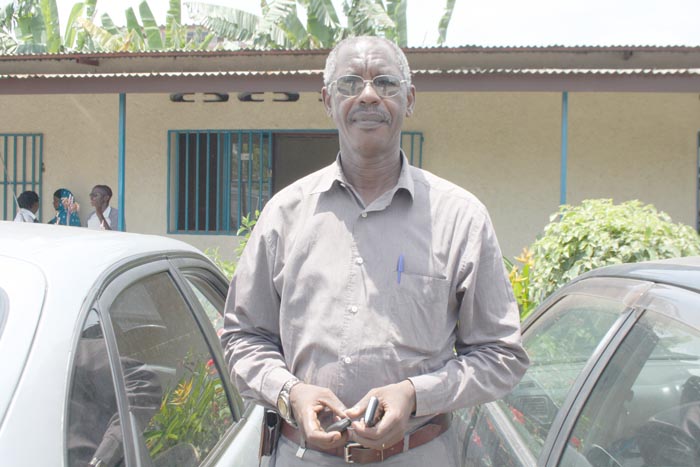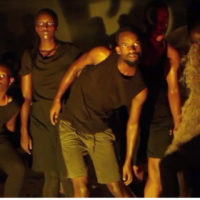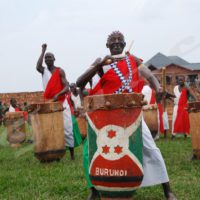Today, children are not motivated and urged to know Kirundi more efficiently than in former times. Then, according to many traditionalists, parents and educational institutions as well as the government must give it its real value.-By Yves Didier Irakoze

Adolphe Ntibasharira: “Everyone must feel concerned about protecting our language as this one is a picture and image of our nation, our language culture vehicle as well as the pillar of our country and society.”©Iwacu
“Burundians are not proud of their language. They have disparaging about the Kirundi language whereas they should be the best examples and its defenders in front of foreigners,” states Adolphe Ntibasharira, a Burundian traditionalist. He goes on saying that parents, who should encourage their children to take advantage of Kirundi and be glad of that language, are the ones who despise it first. For instance, when they are talking, they mix up Kirundi with other languages. Germaine Niyonzima, a former teacher of Kirundi shares Ntibasharira’s view stating that parents educate children to consider learning foreign languages as the best way of being an intellectual.
“Nowadays, parents do not discuss with their children and teach them good values using their native language through proverbs, tales, lullabies, poems and all other different particular linguistic styles of the language. It seems that the television has come to replace the discussion of our grandparents or fore parents,” deplores Niyonzima.
She adds that even at school, Kirundi is not given enough time like other courses in the curricula. It is taught along with other languages such as English, Kiswahili and French. Then, pupils become confused and mix up all languages without mastering well any of them. According to him, in many offices, meetings are held in Kirundi but reports are written in French.
“Even cultural clubs that were initiated to teach Burundian culture in different schools do no longer exist and the very few which are still present are attended by a very little number of pupils. They prefer English and French associations or clubs where they dance modern music,” regrets a Headmaster of one private school in Bujumbura. According to him, this aspect shows that pupils have developed a negative attitude to their own culture. Surprisingly enough some of them fail in Kirundi courses at school! Joanna Nganda, a Burundian journalist mentions that even Burundians, who go near here in Rwanda for only one week, come back in Burundi speaking Kinyarwanda but you will never hear a Rwandan person speaking Kirundi even after spending five years in Burundi. Ntibasharira also confirms that Kirundi is a language which is imbued with ideas, feelings, qualities like respect, smoothness, kindness, wisdom, common sense, etc and doubtlessly, it is very rich and pure linguistically speaking. For example, when Burundians are in a pub with various people like Congolese or others, someone can identify them more easily because they talk quietly as their conversation is featured by harmony and mutual understanding.
Protecting our language from dying out is our must
“Everyone must feel concerned about protecting our language as this one is a picture and image of our nation, our language culture vehicle as well as the pillar of our country and society,” points out Ntibasharira. According to him, parents should resume that good attitude of talking and organizing discussions with their children in Kirundi especially at night and inform them about the importance of mastering their language effectively.
For Cédric N, the government must give an important and appropriate place of Kirundi in school programs. Hence, schools should as it used to be, organize debates, fluency tournaments, games or any other kind of cultural and linguistic competitions where pupils and students get presents, awards, prizes, etc.



















 IWACU Open Data
IWACU Open Data

